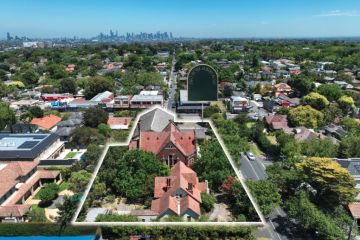Common mistakes first home buyers make and what to do instead

Making mistakes is part of human nature, it’s how we learn and grow. But when those mistakes happen with the single biggest purchase of your life, that wisdom can be costly.
Home buying is an ever-changing beast and one that can get the best of anyone buying property, first timers and seasoned purchasers alike.
“Buying your family home, whether you are a first home buyer or not, is always a challenging process,” says Felix Taing, a Sydney Buyer’s Agent and Property Coach who’s helped numerous first home buyers and aspiring investors through his Stride Property Coaching business.
“Homeowners typically change houses on average every seven to 10 years, so just because you’ve done it once doesn’t make you an expert. With market movements and a changing economy it’s difficult to keep up unless you are consistently in the market.”
But first home buyers can be overwhelmed with an entirely foreign and complicated process, leaving room for multiple errors – from taking advice from the wrong people to forgetting to secure pre-approval.
Taing runs us through the most common mistakes first home buyers should avoid, with his expert advice on how to course correct.
You don’t know your financial position
Many first home buyers can accidentally skip the crucial step of having a realistic (and often sobering) look at their financial position. Instead, they may use the pre-approved loan amount from the bank as their guide to what they can afford.
“Although the banks may provide a pre-approval for a certain figure, it doesn’t mean you need to, or should, spend all of it,” warns Taing.
“You need to decide what you’ll be comfortable with spending on a property by having a good understanding of your own financial habits. As a general figure, your mortgage repayments should not exceed approximately 25 to 30 percent of your net income as this will still allow room for cost of living, savings, investing and discretionary spending.”
It’s also imperative to understand that buying a home isn’t simply the financial outlay of a deposit and stamp duty.
“Some first home buyers are not even aware of the deposit amount and cost of stamp duty, let alone the other costs and considerations required for buying a property,” says Taing. He recommends setting aside an additional $5,000 to cover expenses, separate to lender’s mortgage insurance (LMI) and stamp duty.
From conveyancing fees to LMI and removalists, these are the up front costs buyers need to know.
Knowing your budget also means you’ll look at the areas and properties where you can actually afford, and not let fantasy take the wheel.
You don’t understand the market
“Doing your homework is a vital part to building up confidence and knowledge in the market and this will set buyers apart from the rest,” says Taing. However, he stresses the importance of actually getting out there in person.
“One of the biggest mistakes first home buyers make is that they spend too much time reading about the market rather than being in the market,” explains Taing.
“They feel they need to read and understand everything before that can make a move or even start inspecting properties. This excess of information can spark fear and stop buyers in their tracks.”
A mix of online research (looking at sold listing pricing and market reports) as well as speaking to local experts at inspections will provide a great and more nuanced understanding of an area you’re interest in.
“There are micro markets within each area and suburb, which can present great opportunities to first home buyers”.
Taing gets his clients to put together a due diligence sheet to easily track their area of interest and understand fair market pricing, which includes, “agent selling styles, properties that are in more demand, types of properties that sit longer on the market, market discounts, if a certain agency is open to selling prior to auction and how a property sold.”
You’re unprepared

Taing has noticed that buyers often follow a process where they first inspect a property, then speak with a broker about finance, see what other properties have sold for and finally, look for a conveyancer.
This is the reverse of what you should do to secure a home.
“To have an edge in this market, it is important to have the majority of the due diligence completed before inspecting the property. Prior to inspecting any properties for my clients, I already know what the property is worth, how much other properties have sold for in the area and what is the maximum value I would pay for the property,” explains Taing.
“Unfortunately however, many buyers have been trained to do the reverse. You’re already behind the eight ball as properties are being exchanged on the very same day as they open. Being unprepared will see first home buyers miss out time and time again.”
You go it alone instead of using a mortgage broker
“Successful people around the world all have one thing in common,” says Taing. “They have the right team of mentors and advisors supporting them. Purchasing a house shouldn’t be any different.”
One such advisor is a mortgage broker. They are financial professionals who find the most suitable mortgage for a potential home owner.
“Having a good mortgage broker on your team helps with the buying process as they can assess your position, your goals and your brief to determine the ideal products to match your purchase,” explains Taing.
“Brokers have a wide variety of lenders on their panel and their role is to determine the best fit for your situation.”
But they do much more than snag the best loan. They have a broad knowledge of the products available, can see beyond interest rates, usually have areas of expertise (such as first home buyers or those self-employed) and can re-negotiate your interest rate months after you’ve secure a loan. For the full run down, click here.
Going solo via online research can be an overwhelming process as you’ll need to compare multiple factors across a large number of lenders.
“A broker can provide you with access to up to 30 different lenders. That’s 30 different bank policies, interest rates and loan products. To do this type of research on your own wouldn’t be possible,” says Top 100 Broker Aaron Christie-David.
Even then, you might not realise one lender takes longer to process a loan than others, a delay which could cost you a property. This type of nuanced intel is where brokers shine.
You forget to sort out your pre-approval
Having your finances sorted, including pre-approval – where a lender is tentatively willing to lend you up to a certain loan amount – can be the deciding factor on whether you snag a property over another buyer.
“Finance is one of my biggest negotiation tools,” says Taing.
“If there were two buyers submitting the same offer, one was financed approved and the other still needing to obtain finance, I can guarantee you that I know which one the real estate agent and vendor would pick.”
Arranging pre-approval shows the vendor and agent that you’re serious and ready.
You skimp on pre-purchase inspection reports
Pre-purchase inspection reports include a building and pest inspection of a property. They cost a couple of hundred dollars but can save you tens of thousands if they detect structural issues.
“What is a couple of hundred dollars when you are spending $1,000,000 plus on a house with a 30 year investment? You’ll want to make sure you are buying a structurally sound property to save you any headaches in the future,” says Taing.
But he also points out that you can utilise the reports in your negotiations.
“Pre-inspection reports are not just reports that provide buyers with an understanding on the structural integrity of the property, but also a great negotiation tool.”
Any items that need repairing or attention can be outlined prior to signing a contract. If a vendor is unwilling to have the items rectified, you can then lower your price to cover the cost of repair.
You’re unsure and lacking confidence
“Confidence indicates to a real estate that you understand the process, the market and you are a serious buyer,” states Taing. A lack of confidence can mean you’re slow to react and miss out.
“You can only imagine the amount of buyers real estate agents meet on a daily basis. They don’t have the time to handhold every buyer, so the more prepared and proactive you are as a buyer, the higher your chances will be of securing the right property.”
Furthermore, you might be too shy to ask direct questions of an agent or negotiate for your own best interests. You could also wind up asking the wrong people for advice, like friends and family that don’t have much experience in real estate. Having a good team around you can help boost your confidence.
And if the thought of negotiations sends your anxiety levels through the roof, check out negotiation service Hello Haus.
You let your emotions run the show
Buying a home is a huge life moment and will always have emotion attached, especially for first home buyers. But there are particular parts in the process you need to get them in check so that you don’t end up overspending.
“Purchasing a property for first home buyers is always going to be an emotional experience,” says Taing.
“It’s typically their biggest commitment and the place where they will drop down roots and settle-in with their partner and young family. Being a new chapter, it’s actually quite difficult to not get emotional about the purchase as it is a very exciting time.”
But unfortunately, excitement and desperation can cause trouble for a first home buyer.
Taing sees the common scenario play out: “they have been looking for months; they become weary and exhausted by the process and will settle for almost anything or over pay to get their weekends back.”
While going a little over budget can be OK as it is a long term investment, not knowing your max limit can spell disaster.
“Where emotions can really get buyers into trouble is when they don’t set a maximum limit and they get into an emotional bidding war with another buyer,” says Taing. “Should valuations not stack up, the buyer will need to find a way to come up with the shortfall.”
We recommend
We thought you might like
States
Capital Cities
Capital Cities - Rentals
Popular Areas
Allhomes
More
/http%3A%2F%2Fprod.static9.net.au%2Ffs%2F09401ebb-939b-426a-8e0c-4b0c24886820)
/http%3A%2F%2Fprod.static9.net.au%2Ffs%2Ff885f9d0-7b61-437f-a129-9acdc0e87601)
/http%3A%2F%2Fprod.static9.net.au%2Ffs%2F164e9524-9d1f-434f-a7d6-b8f3f101dee2)







